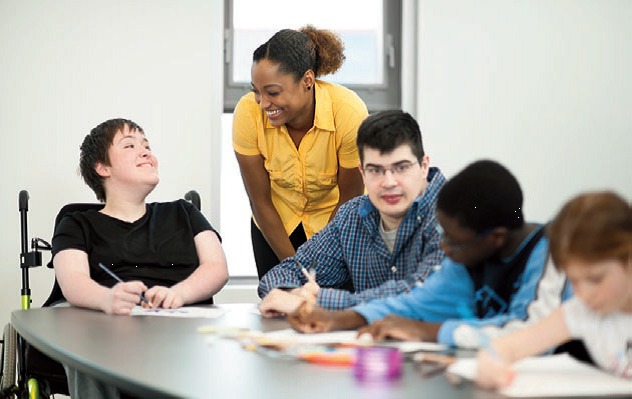
When it comes to special education, one of the key goals is to help students build independence and prepare them for life beyond the classroom. A life skills curriculum plays a crucial role in achieving this objective by teaching students the essential skills they need to navigate daily life and the workforce. By focusing on practical skills that promote independence, individuals with special needs can become more self-sufficient and confident in their abilities.
One of the fundamental aspects of a life skills curriculum for special education is teaching students how to manage their personal care. This includes activities such as grooming, hygiene, and dressing oneself. By learning how to take care of their basic needs, students can develop a sense of self-reliance and confidence in their abilities. These skills are not only important for daily living but also for building self-esteem and social integration.
Another crucial component of a life skills curriculum is teaching students how to navigate the community and interact with others in a variety of settings. This can include teaching students how to use public transportation, shop for groceries, or participate in recreational activities. By mastering these skills, students can become more independent and engaged members of their communities. Additionally, these experiences help to build social skills and foster meaningful relationships with others.
Financial literacy is another essential life skill that is often included in special education curriculums. By teaching students how to manage money, budget, and make responsible financial decisions, individuals with special needs can become more empowered to make informed choices about their finances. This not only promotes independence but also prepares students for the financial responsibilities they will encounter in adulthood.
Communication skills are another key component of a life skills curriculum for special education. Teaching students how to effectively communicate with others, express their needs and wants, and advocate for themselves is essential for building independence. By developing these skills, individuals with special needs can become more self-assured and better equipped to navigate various social and professional situations.
Problem-solving and decision-making skills are also essential aspects of a life skills curriculum for special education. By teaching students how to identify problems, evaluate solutions, and make informed decisions, individuals with special needs can become more adept at overcoming challenges and taking control of their lives. These skills are crucial for building independence and preparing students to handle the uncertainties of adult life.
Time management and organization are two more critical skills that are often included in a life skills curriculum for special education. By learning how to prioritize tasks, manage their time effectively, and stay organized, students can become more efficient and productive in their daily lives. These skills are particularly important for individuals with special needs who may struggle with executive functioning and need additional support in managing their responsibilities.
Finally, vocational skills are an integral part of a life skills curriculum for special education. By teaching students job readiness skills, such as resume writing, interview preparation, and workplace etiquette, individuals with special needs can become better equipped to enter the workforce and pursue meaningful employment opportunities. These skills not only promote independence but also empower students to achieve their career goals and contribute to society.
In conclusion, a life skills curriculum for special education plays a vital role in helping students build independence and prepare for life beyond the classroom. By focusing on practical skills that promote self-sufficiency and confidence, individuals with special needs can develop the abilities they need to navigate daily life, interact with others, and succeed in the workforce. By incorporating essential skills such as personal care, community navigation, financial literacy, communication, problem-solving, time management, organization, and vocational skills, students with special needs can become more independent, confident, and empowered individuals. Ultimately, a life skills curriculum equips students with the tools they need to lead fulfilling and productive lives as active members of their communities.